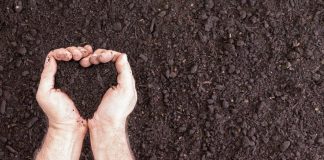In the west we refer to traditional medicine as what we know to be modern western medicine, and we refer to older practices as alternate medicine. In the East, that which is truly traditional medicine is still widely practiced – Chinese medicine in the Far East, Ayurveda and Siddha in India. Fortunately in the past two decade the potency of these ancient practices has become more recognized in the West, and these practices are somewhat more mainstream.
Among these older practices, what is the difference between Ayurveda, Siddha, Chinese Medicine, and today’s Allopathy?
Essentially allopathy, or western medicine, uses synthesized chemicals to treat illnesses. It is appropriate for short-term disorders, infections, or emergency cases. But if one suffers from chronic ailments then chemical manipulation is not the answer – a more holistic approach is needed. The body’s long-term energy balance needs to be addressed. The ancient understanding is that an imbalance in the body energy is the root cause of disease which manifests physically. Chinese medical practitioners read one’s Chi, otherwise known as Prana, and many other names in different cultures. Accordingly, herbal formulations are prescribed to bring one’s Chi back into balance. Similarly Ayurveda involves a deep understanding of the effect on natural compounds on the body’s energy flow. It has upwards of 300,000 formulations, and like Chinese medicine, it takes a lifetime to become a master.
Ayurveda is the science of aliveness. A traditional Ayurvedic doctor will intuit the patient’s particular life diagnostic, and accordingly pick out a herbal compound that will optimize that life’s manifestation. This is why it’s a life time’s pursuit to be an Ayurvedic master. For more on Ayurveda, see this article: https://celebrateyoga.org/what-is-ayurveda-yoga/.
On the other hand, Siddha Vaidya is all about the elements: cleansing and handling the fundamental elements of the body: earth, fire, water, air. It takes less study to master Siddha but because it is about the already-manifest gross body, it takes more effort and internal mastery to make a noticeable change. It works better on those who have been practicing yoga, a yogic diet, and have generally maintained an uncontaminated elemental body. Siddha Vaidya is truly effective when practiced by a Siddha – meaning “an established one” or in other words, a practicing yogi. It’s not a medicinal practice per se, it’s more of a self-maintenance and well-being practice.
As with all things in life, the right answer is a balance. The right approach needs to be taken for the right circumstance. One system of medicine does not fit all. Sometimes, allopathy is absolutely needed – so many innumerable lives have been saved in the application of modern medicine. But before disease progresses to that level of need, there are wonderful ancient medicinal practices that can set the human system up for exuberant life.
47 Most Famous Motivational Quotes of All-Time
49 Greatest Love Quotes
37 Inspirational Quotes that Will Change Your Life
































